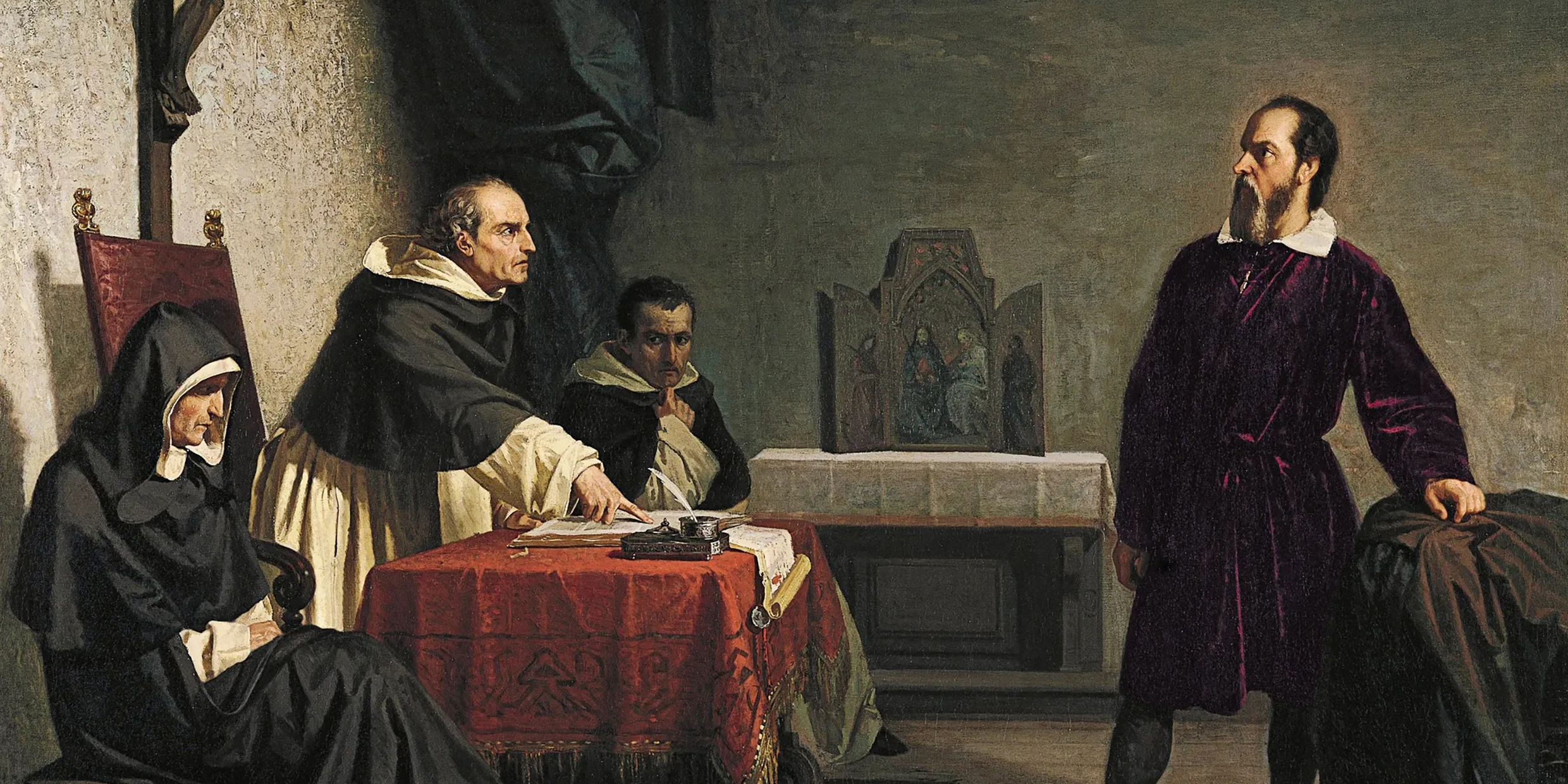Originally published 7 January 2003
On the evening of January 7, 1610, Galileo Galilei, citizen of Florence and mathematician of the University of Padua, turned his telescope to the planet Jupiter. He saw the planet as a round disk against a background of three tiny stars, all in a row.
The next night he looked again. Jupiter had moved, as he had known it would, against the background of the three stars. But it seemed to have moved in a direction contrary to the common knowledge of astronomers.
Galileo was no dummy. He knew he was on to something. Something big. He waited eagerly for the evening of January 9. Clouds!
On January 10, the sky was clear again, and again Jupiter had apparently moved relative to the three faint stars. Indeed, one of the stars was now hidden behind the planet. Galileo began to think the unthinkable — that the background “stars” were not stars at all, but rather satellites of Jupiter, in orbit about the planet.
Further observations over the following weeks confirmed that Jupiter indeed had moons. The implications of this discovery were stupendous. The Earth is not the sole center of the universe. Jupiter is a center. Perhaps, as Copernicus had said, the sun is a center.
With Galileo’s telescopic discoveries — that included mountains on the moon, spots on the sun, and the phases of Venus — the entire theological-philosophical cosmology of European civilization was challenged. And Galileo knew it. He had dared to think the unthinkable, and now he had to face the consequences.
It is an extraordinary story, and no wonder it continues to intrigue us. In recent weeks, Dava Sobel’s book, Galileo’s Daughter, has been sitting on the bestseller lists, PBS ran a television series based on the book, and an opera about Galileo by composer Philip Glass was produced by the Brooklyn Academy of Music.
Meanwhile, Bertolt Brecht’s famous play, Galileo, originally written in 1938, finds its way onto the stage. And library shelves groan under the weight of new Galilean scholarship.
Galileo’s story is not just about the conflict between reason and revelation, nor is it only about individual conscience vs. authority. The plot is muddier than that, and it is the muddiness that attracts us.
Some of the antagonists in the story, Cardinal Robert Bellarmine or Cardinal Maffeo Barberini, for example, were men of intelligence and good will trapped in their loyalty to a monolithic institution they believed to be divinely inspired. Galileo was conflicted, too, struggling under the influence of his daughter, Sister Maria Celeste, to remain a true son of the church.
The scene now shifts, from the winter of 1610 in Padua to the sultry summer of 1633 in Rome. Cardinal Barberini has become Pope Urban VIII. Bellarmine is dead. The institutional case against Galileo has gained an irresistible momentum; no single voice can deflect the inevitable condemnation.
Galileo, 70 years old and blind, is led into a great hall of the Vatican to receive his sentence in the presence of the assembled cardinals and Dominican friars of the Inquisition. He stands convicted of the crime of heresy, for teaching that the Earth moves. He is lucky not to be sent to the stake, like other heretics of his time. He is instead sentenced to house arrest in Florence for the rest of his life.
Having received the judgment of the tribunal, Galileo kneels abjectly on the marble floor of the great hall and recants his “sin.” He says what he thinks the assembled churchmen want to hear: “With sincere heart and unfeigned faith, I abjure, curse, and detest my errors.”
We’ll never know to what extent Galileo was sincere in his recantation, or merely shrewd. An old tradition says that at the end of his public avowal of the stability of the Earth, he murmured under his breath, “And yet it moves.” There is no historical evidence for the remark.
Yet it does move. No reasonable person any longer doubts the motion of the Earth. Even the Roman Catholic Church, with the ponderous inertia and long institutional memory of all authoritarian bodies, finally got around in 1984 to admitting it erred in the condemnation of Galileo.
But, of course, the tension between reason and revelation, individual conscience and institutional authority, endures. As always, the conflict is not necessarily between unmitigated good and evil; sometimes principled individuals compromise their conscience in the face of authority (think J. Robert Oppenheimer), and sometimes well-meaning bureaucrats become moral hostages to the institutions they serve (think Cardinal Bernard Law).
It takes a particularly courageous individual to stand against the collective certainties of his or her society, and it is the rare institution that graciously accommodates principled dissent.
Which is probably why the Galileo story still resonates. We know who the hero of the story is, and we wish he had been more heroic. If he had gone to the stake, as some of his enemies no doubt fervently wished, the story would have been less equivocal in its ending. But it would also not have been so universally true.



